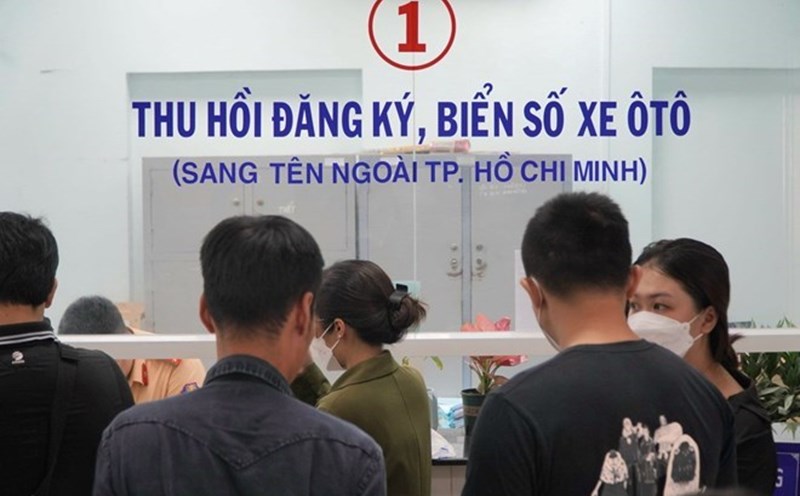Experts say the reason for this comes from the reduction in registration fees, increased demand for car purchases at the end of the year, attractive bank lending policies and a vibrant real estate market.
Four main reasons why the car buying market accelerates at the end of the year
According to a survey of businesses operating in major cities, the increase in car consumption can be attributed to four main reasons: Registration fees reduced by 50%, increased demand for goods transportation and additional service vehicles by businesses, a vibrant real estate market, and a major reason coming from bank lending policies. The third quarter business results reports of some banks also clearly show this.
For example, at VPBank, data on auto loans for the corporate segment of this bank shows that in the third quarter alone, outstanding auto loans for businesses achieved the highest growth rate, equivalent to an increase of more than 8% compared to the second quarter and an increase of more than 10% compared to the same period, accounting for about 40% of the market share of loans for purchasing passenger cars.
This growth rate is forecast to be even higher in the final months of the year with a sharp increase in demand for vehicles for travel and business purposes.
Banks step in to help businesses have more options
Auto loans have been a key product of some banks for many years, especially at banks that have focused on developing products and services specifically for the small and medium-sized enterprise (SME) segment. With the advantage of establishing the SME segment for more than 10 years, VPBank is the bank with the most open lending policy and makes it easier for businesses to access.
“We have only been established for 8 months so it is very difficult to access capital from banks as the requirement is usually to have an annual revenue report,” said Mr. Nguyen Thanh Nam, owner of a business operating in the PVC pipe sector in Hanoi.
“My company has just closed a loan to buy 3 trucks for transporting goods and a 5-seat tourist car. I chose VPBank, simply because the bank's approval process is very fast, taking only about 90 minutes and we are in control of every step, from submitting the application to completing the disbursement.
Moreover, the interest rate is very good, only from 6.8%/year, the loan approval is not only 100% of the car value but also the registration tax is added to the property value, the VAT is deducted. VPBank's loan term is currently the longest, up to 96 months, significantly reducing the pressure of monthly payment costs."
“We built a digitalization process called Race App, which is one of VPBank's biggest competitive advantages in the business lending market,” said a representative of VPBank's Small and Medium Enterprises (SME) division.
“Race App not only helps reduce resource costs for banks, but also increases labor productivity, makes the entire loan approval process transparent, reducing approval time from 8 hours to a few dozen minutes, but at the same time helps banks manage risks better.
This is probably the main bottleneck that has helped VPBank's auto loan balance in particular and credit growth in general in the SME sector increase steadily over the past two years."
According to the report of the Ministry of Planning and Investment at the Conference of the Government Standing Committee working with businesses on solutions to contribute to the country's socio-economic development held on September 21, 2024, Vietnam currently has more than 930,000 operating enterprises, of which 98% are small and medium enterprises.
Governments at all levels have also continuously issued policies to promote development for this sector, which accounts for a large and important proportion in the development of the economy. The fact that banks regularly improve and upgrade credit products for this sector shows their will to accompany SMEs and their determination to realize support policies so that businesses have a solid foundation, cope well with existing difficulties and make practical contributions to the economy.











